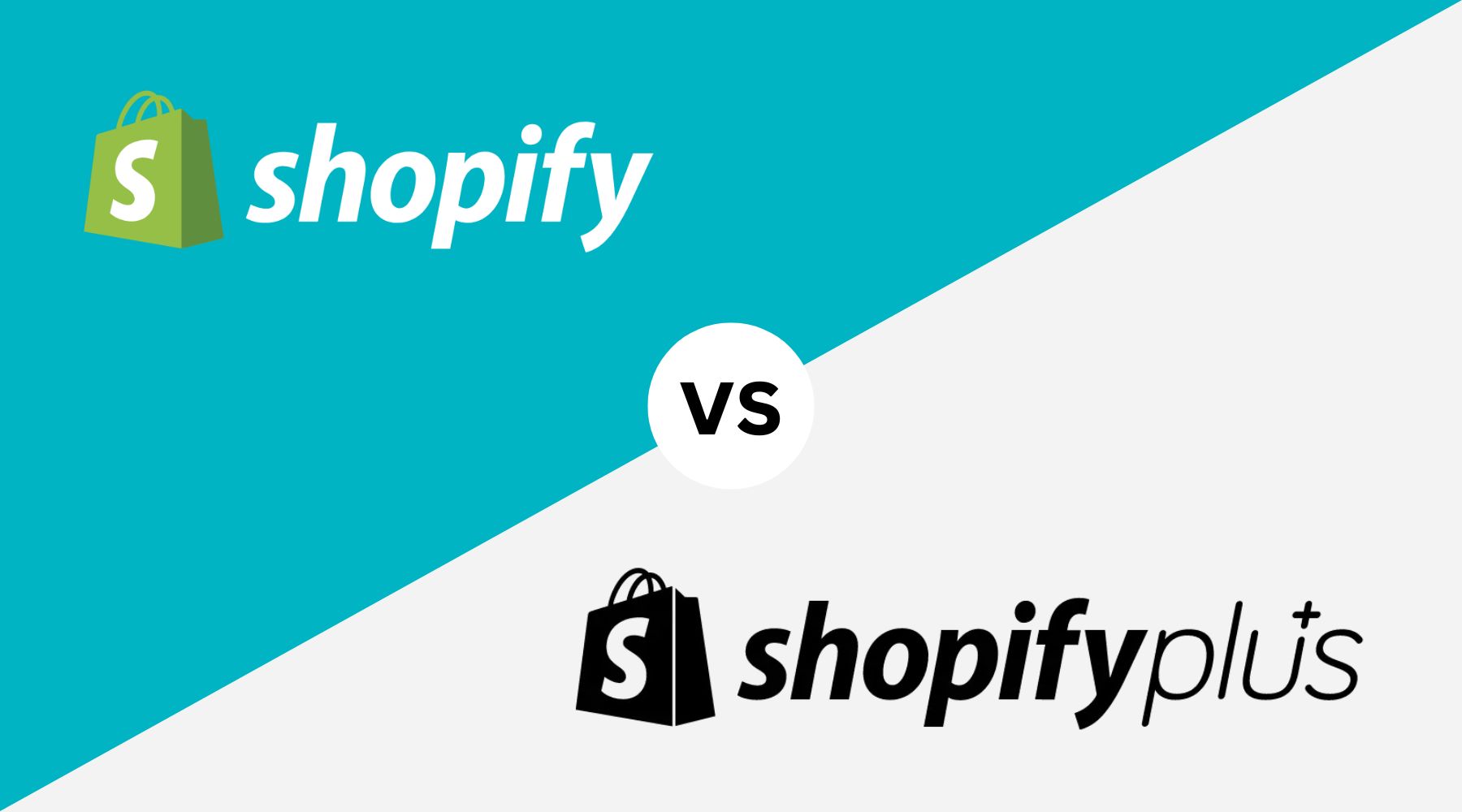If you run a scalable Shopify online store, sooner or later you’ll face the decision: Shopify vs Shopify Plus. Both sit in the same ecosystem, but they’re built for very different company sizes and requirements.
While the standard plans are a solid fit for small to mid-sized e-commerce Shops, Shopify Plus is about enterprise features, deeper technical customization, and maximum performance.
The tricky part: at first glance, the differences can look minor—but they determine whether your shop hits limits as you scale.
Especially if you’re considering Plus features like higher API limits, customized checkout experiences, or international scaling, it’s worth evaluating which option fits your current business strategy.
In this article, you’ll get a clear, practical comparison—with a focus on technical advantages, economic trade-offs, and real-world use cases. You’ll learn when an upgrade makes sense, what benefits to expect, and which growth paths the platform enables.
What fundamentally differentiates Shopify and Shopify Plus?
The difference isn’t so much in the interface, but in the technical and structural capabilities.
Both run on the same core platform. However, standard Shopify is designed as a mainstream solution for getting started and growing a smaller brand—while Shopify Plus targets complex enterprise e-commerce setups.
With standard Shopify, you get a stable foundation to sell products online, use themes, and manage your store with relative ease.
But at a certain point—whether due to revenue growth, international expansion, or custom requirements—you can run into limitations. That’s where Shopify Plus comes in.
Shopify Plus gives you access to higher API limits, deeper checkout customization (historically via Script Editor and other Plus tooling), more control over roles and permissions, and access to dedicated support structures and Shopify Plus consulting options.
You’re also supported differently when it comes to launches, data migrations, and backend integrations. For many businesses, that means fewer workarounds, smoother scaling, and real independence for custom development.
This difference is not only technical—it’s strategic. Especially if you’re aiming to continuously improve your conversion rate and operational efficiency.
Shopify vs Shopify Plus: features & architecture compared
When weighing the two, the biggest gap is in technical architecture and feature depth.
Standard Shopify works like a powerful “builder” for smaller to mid-sized stores. Shopify Plus is a full enterprise-grade solution designed for maximum control and scalability.
With standard Shopify, you get product management, themes, and standard apps—a strong start for many brands. But once you need custom checkout flows, deeper integrations, or multi-store structures, you’re more likely to hit constraints.
Shopify Plus unlocks higher API limits, advanced automation with Shopify Flow and Launchpad, access to Plus-exclusive apps, and broader platform capabilities that can be tailored via Shopify Plus development services.
Comparison:
|
feature |
Shopify |
Shopify Plus |
|
Monthly costs |
30–360 € |
from 2,000 USD |
|
API limits |
standard |
Advanced |
|
Checkout customization |
Restricted |
Fully customizable (Script Editor) |
|
Multi-store management |
Not possible |
Including |
|
Automation (Flow, Launchpad) |
Restricted |
Fully available |
|
Access to Shopify Plus apps |
No |
Yes |
|
Dedicated Support / Account Manager |
No |
Yes |
|
Wholesale channel |
No |
Yes |
Pricing, scaling & business value
Pricing is a key point. While standard Shopify ranges roughly from €30 to €360 per month, Shopify Plus typically starts around $2,000/month, depending on revenue.
That difference looks big at first—but can shrink quickly for ambitious shops. High-growth businesses often lose time, flexibility, and margin on standard plans due to third-party app costs, platform limitations, and inefficient workarounds.
Shopify Plus gives you infrastructure designed for growth: you can automate processes, improve conversion rates, and expand internationally with fewer compromises.
In combination with an experienced Shopify Plus agency, Plus becomes less of a “cost” and more of an investment in performance, stability, and long-term scalability.

Who should use Shopify—and when is Plus the better choice?
This decision should be based on requirements, not gut feeling.
Standard Shopify is ideal for startups, small brands, and niche products—especially when you want to move fast with limited complexity.
But if you find yourself relying on workarounds, stacking too many apps, or keeping critical processes manual, that’s a signal you may be outgrowing the standard setup.
International selling, complex discount logic, and B2B workflows can also push standard plans to their limits. That’s where Shopify Plus shines: scalability, automation, and flexibility.
The key isn’t only what you need today—it’s what you plan to need in 6–18 months. With a strong Shopify Plus development partner, you can build features far beyond the standard package and create real business value.
Shopify for smaller e-commerce projects
If you’re launching your first online store or selling a clearly defined product range, standard Shopify is often the right starting point. With minimal technical effort, you can launch quickly, use themes and apps, and benefit from the ecosystem.
That simplicity has limits, though. As soon as you expand across markets, need custom checkout behavior, or require deeper system integrations, the setup can become complex and expensive—because you start leaning heavily on third-party apps.
For smaller shops, standard Shopify is an excellent beginning—but it’s not automatically the best long-term enterprise solution.
Shopify Plus for enterprise setups and brand growth
Once you’re serving multiple countries, customer segments, or sales channels, standard features may no longer be enough. You need custom pricing rules, role and permission control, deeper backend integrations—in short: enterprise functionality.
That’s where Shopify Plus comes in.
With Shopify Plus consulting, you can realign your shop strategically and technically. You can manage marketplaces, B2B models, and international stores more centrally—while gaining more control over checkout, API capacity, and performance.
With the support of a specialized Shopify Plus agency, you can create a setup tailored precisely to your growth strategy.
Shopify vs. Shopify Plus case study: real-world results
A practical example: a fashion brand with multiple international stores hit technical limitations on standard Shopify—especially around currency conversion, checkout customization, and promotion logic.
After moving to Shopify Plus, the company reportedly increased revenue by 27% and significantly improved conversion through personalized checkouts and targeted promotions.
The migration enabled ERP integration, centralized management of multiple sub-stores, and automated campaigns via Shopify Flow. Results like these show that the decision isn’t just about price—it’s about scalability and market execution.
Shopify vs Shopify Plus: Technical advantages and limitations
If your focus is performance, automation, and customized processes, the technical layer becomes crucial.
Standard Shopify is stable—but it isn’t built to model complex enterprise requirements out of the box. You’ll hit limits faster.
Shopify Plus expands those limits through higher API capacity, deeper checkout customization, and extended permission management. This isn’t about “nice-to-have” features—it’s about technical leverage that makes your operations more efficient and supports growth.
With Shopify Plus development services, you can systematically remove common standard-plan constraints. Want advanced promotion logic or deep integrations into your system landscape? With Plus, you’re less dependent on app workarounds—and you can shape the platform to fit your business.
Custom functionality with Shopify Plus development services
With standard Shopify, custom requirements often mean adding third-party apps—sometimes at the cost of performance and maintainability.
Shopify Plus development services allow you to build tailored features and cleaner integrations directly at the code level.
Examples include personalized checkout logic, dynamic pricing rules, or complex promotion engines aligned with your business model. For that, you need development freedom—and Plus enables more of it.

Integrations & API flexibility
A common misconception: Shopify Advanced also provides API access. True—but Plus typically offers higher limits and greater capacity.
That becomes decisive when integrating systems like ERP, PIM, or CRM natively without fragile workarounds.
This is often where the Shopify Advanced vs Shopify Plus discussion is decided: if you need clean, scalable integrations, Plus becomes the more realistic option. Multi-store management and extended permission control are also commonly cited Plus-only advantages.
Performance, scalability & Shopify Plus advantages
Standard Shopify can handle a lot—but Shopify Plus is optimized for sustained growth. You get prioritized support and an environment designed for high load. That shows up in stability, checkout reliability, and readiness for peak events.
During campaigns, launches, or high-frequency sales periods, Plus’s scalability can make the difference between “it works” and “it works flawlessly under pressure.”
Conclusion: this should be a strategic decision
“Shopify vs Shopify Plus” isn’t purely a technical question. It’s about strategy, growth, and control. Standard Shopify is a strong foundation to launch quickly and efficiently on a limited budget. But as your business grows, its limits become more visible.
Shopify Plus isn’t just “more of everything.” It’s a deeper platform layer. You’re not only buying extra features—you’re getting structural capabilities for scalable, high-performance, highly customized e-commerce processes.
For brands operating in multiple markets, with high transaction volumes or complex requirements, that difference is often decisive.
If you’re planning to scale systematically or expand into new markets, it’s worth considering Plus early. With the right Shopify Plus agency and solid consulting, you can build a platform setup that fits your business—technically, strategically, and economically.








